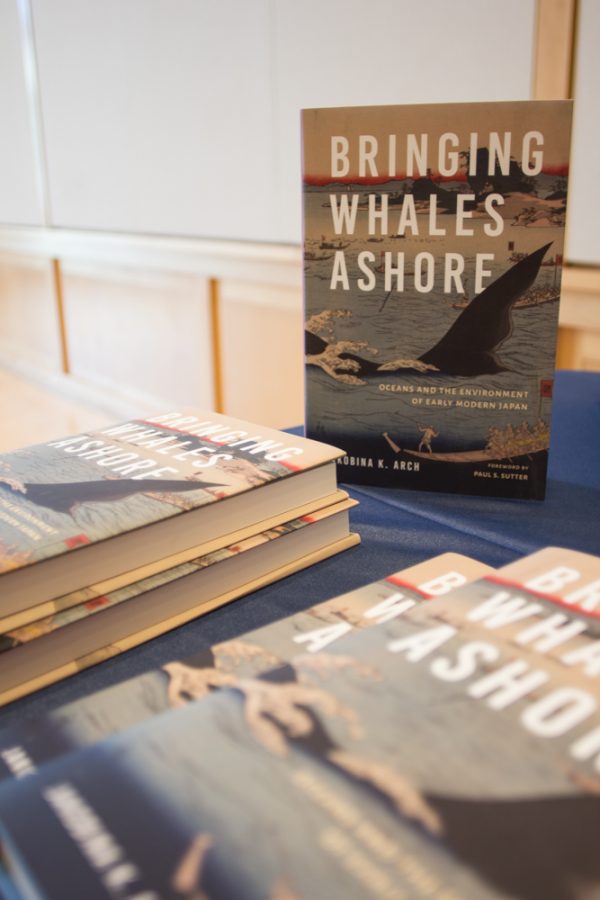On music charts, the most impressive hip-hop album of the last five years hardly made a splash. Rolling Stone gave it a modest three and a half out of five stars. It appeared fleetingly, arriving unheralded and departing quietly like a specter in the mainstream consciousness.
It is perhaps fitting that “Undun” (2011) moved like a ghost in the hip-hop world––the album is in itself something of a psychological symptom, vast and empty, chilling and starkly beautiful.
“Undun” is an ambitious existential project chronicling the brief and tragic life and demise of Redford Stephens, a fictional character named after Sufjan Stevens’s song “Redford”. The 20 year musical career of The Roots has seen significant mainstream success, Grammy awards, worldwide tours, and now prominence on late night television, but “Undun”, a concept album which clocks in at less than 40 minutes, is the Philly hip-hop collective’s most compelling release to date.
The music reviewers at HipHopDX afforded an exceptionally rare “perfect” rating to “Undun”, reporting that “The Roots have crafted an album that … elevates hip-hop”. The ever-diversifying genre of “hip-hop” has always done well to resist rigid, watertight compartmentalization, but the lyrical content of hip-hop in the “Post-Drake” era has, by in large, eschewed the conventions of storytelling which characterized the music in its earlier stages. Perhaps the reinvigorated concern with narrative structure is implicit within the suggestion that “Undun” “elevates hip-hop”. Perhaps that’s exactly what they mean. The Roots have engaged in a bold, unapologetic project of reverse chronology; we know from the album’s first seconds that Redford Stephens’s story concludes in death, so we are left to gradually untangling the skein of his life over the course of the album. It is delivered like a hip-hop scene of Virgil’s “Aeneid”. The album’s ghastly subversion of causality marks a truly scintillating literary achievement.
“Undun’s” wraithlike first track, “Dun”, invites its listeners into its compelling tragedy. It enacts Redford’s death in reverse, beginning with the unfriendly sound of a flatlining electrocardiogram. Life crescendos out of the psychotropic, shrill tone of the EKG, beginning with a spacious and somber synthesizer loop, then revealing a heavy, fluttering heartbeat and finally a blood-curdling scream played backwards. The track places us in a murky, disorienting postmortem vacuum, but more importantly, the listener is informed that the album is utterly heartbreaking before it really even begins.
The effect of the tragedy “Dun” engenders is twofold. Like all literary tragedies, it ensnares us, demands an emotional response to the action. It invites our empathy and our despair. But the fact that Redford’s fate is already sealed makes this tragedy all the more enduring and menacing––in the schema of “Undun”, there is no justice and no possibility, only suffering and hunger.
“Sleep”, the second track, finds Redford in his last breaths, a brain reaching out into his past for explanation. Through his existential ruminations, we glean that Redford, like so many others born into insular poverty, has played out a battle between an ideal free will and a grim destiny in a world with no escape hatch, dominated by drugs and crime. The Roots’ Black Thought raps: “Illegal activity controls my black symphony/Orchestrated like it happened incidentally/Oh––there I go, from a man to a memory”. Sure, this is a storyline we’ve encountered before, but we’ve never seen it enacted in such a poignant way. “Sleep” is a muddled elegy, operating in an uncanny liminal space, standing somehow in life and in death at once.
This is where we get the sense that Redford might just be a ghost of the street corner. Bristol University Professor Andrew Bennett elucidates the modern conception of the “ghost”, which “involves the idea of a spectre, an apparition of the dead, a revenant, the dead returned to a kind of spectral existence––an entity not alive but also not quite, not finally, dead”. The whole of “Undun” treads on this ground; the narrators of Redford’s existential turmoil reveal more of his life over the course of the album, but the listener becomes engaged in a postmortem process of discovery. Each song is a puzzle piece which both clarifies and confounds.
But as Redford’s life is unraveled, we do come to understand the tragedy of his life more fully, just as we become acquainted with the tragedy of his death. In “The OtherSide”, another lyrical knockout buttressed by a commanding down-on-one drum groove and lit up by a soaring, organ-backed Bilal hook, Black Thought speaks to the limited scope of Redford’s aspirations: “But when that paper got low, so did my tolerance/And there ain’t no truth in a dare without the consequence/Listen, if not for these hood inventions/I’d be just another kid from the block with no intentions”. We glean that Redford’s frustrations with his own poverty have impelled him to seek financial gain by any means necessary. Black Thought brings out a cruel dramatic irony in this last line. The expressions of the discrepancies between our understanding of Redford’s ultimate fate and Redford’s justifications of his own behavior are the instances in which “Undun’s” reverse chronology reaches its maximum tragic effect. As listeners, we are intended to experience the sudden changes in Redford’s fortune––the peripeteias, in Aristotelian terms––more viscerally than he does. This puts us in the driver’s seat, makes us the omniscient narrators.
In “Stomp”, the seventh track, Redford subtly reveals his role in a drive-by shooting. Here, though, Redford is afforded a revelation which foreshadows––perhaps “alludes to” is more appropriate, given the reverse narrative arc––his own death. This song solidifies Redford’s fatalistic attitude towards his involvement in drugs and violent crime––”Never deviating from a plan/I drive by, headed for the valley of the damned”––but it also presents him when he is most self-aware. Redford’s moment of self-recognition (or anagnorisis, to use another Aristotelian term) occurs just after he has ostensibly committed murder: Thought concludes the song’s first verse by suggesting “It just as easily coulda been me instead of ya”. Sudden moments of recognition and reversals of fortune abound in tragedies, but in undun their purposes are reverted and complicated.
The album concludes with a four-track instrumental suite. In the final track, aptly named “Finality”, a weeping, bravado violin solo provides a heart-rending elegy for Redford’s innocence, interrupted by the crash of a low and dissonant piano chord which lingers in the listener’s consciousness like the hum of a malevolent machine. Thus, the album is bookended by death; darkness’s usurpation of beautiful, melodic innocence enacts the suddenness with which a street hustler’s life can hurdle towards unceremonious death. It is a fitting destruction, bleak and unsettling yet murky and inexact in its details, the sonic equivalent of Redford folding a nine-millimeter pistol into the creases of his hand.
“Undun” is not a “banger”; the word “accessible” does not apply easily to this album. In effect, there are no standalone tracks––the album is meant to be experienced in its shattering, astonishing totality. This is not Jay-Z’s rags-to-riches, dope-dealer-to-platinum-rapper story. It is a story of a doomed minion, a drug-runner fated to die as a drug-runner, a man living out his dependencies on the lowest rung of the most rickety ladder, neither a victim nor a hero. The understated musical and lyrical mastery of the album is crucial to hip-hop in the “Post-Drake” era, but what is perhaps most important is that “Undun” reasserts hip-hop’s credibility in storytelling, and it does so with a meticulous concern for pacing and staggering tragedy.





